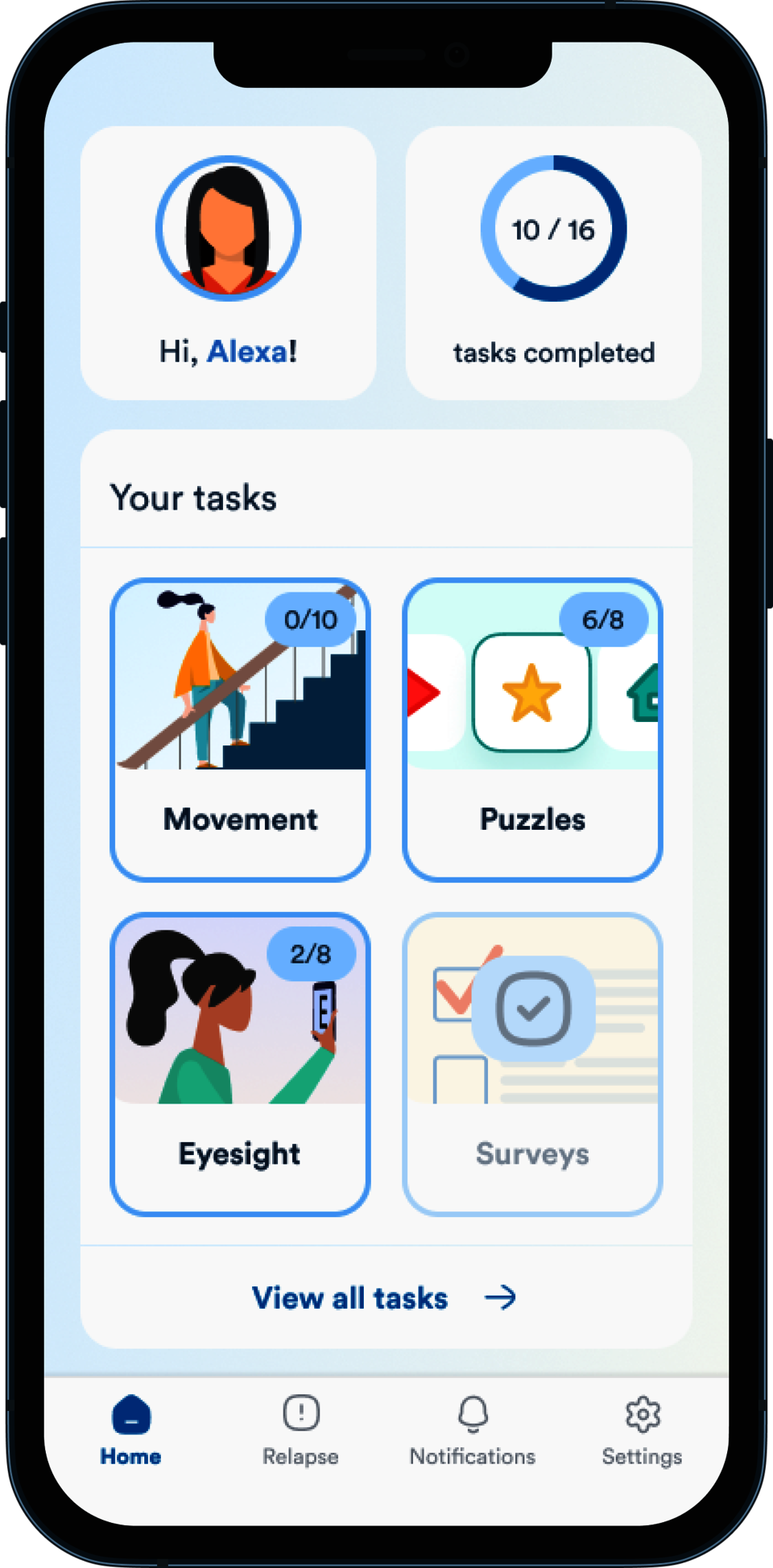Workstream 1 - Digital Future
The area of our lives that is changing most rapidly and innovatively is digital.
RC2NB aims to be a pioneer in exploring the digital future using digital devices and wearables for patient assessment and care. In an increasingly digitally connected world, we aim to integrate research into care with the goal of providing real-world evidence of high quality and validity.
In this workstream, RC2NB is developing digital tools to comprehensively assess the disease course and create a better understanding of how medical advances translate into better quality of life and health in everyday life and to better manage the disease.
A major focus is on digital patient-centered health apps. These apps can measure digital biomarkers reflecting the health status of patients, with the validity needed for medical decision-making in clinical care, for assessing treatments in clinical research, and meeting regulatory standards required for drug approval and health technology assessment. These health apps are patient-oriented and also aim to provide a digital platform for optimized disease management in routine care.
Further activities aim to leverage routinely collected health data for research by improving the standardization and digitalization of clinical neurological examinations (Neurostatus-eEDSSR) and by exploring novel approaches to better link and interoperate digital health data sources.
Core Members
PD Dr. med. Marcus D'Souza
PD Dr. med. Johannes Lorscheider
PD Dr. med. Lars G. Hemkens MPH
Digital health app aiming to provide digital biomarkers that comprehensively detect subtle disease progression, earlier than standard biomarkers
Establish a digital platform for optimized disease management
Validation studies to assess clinical value and meaningfulness and meet standards for health technology assessment and regulatory approval as outcome
- Neurostatus-eEDSS: Standardization and digitization of established monitoring tools to improve data consistency and reduce background noise based on an algorithm-based real-time check
- Establish telemedicine application to provide clinical examination set-up at patients home including potential use for Decentralized Clinical Trials (DCT)
- Providing consulting for validations and user acceptance testing (UAT) of digital tools, training in standardized clinical neurological examinations with focus on Multiple Sclerosis and analysis of complex clinical datasets

